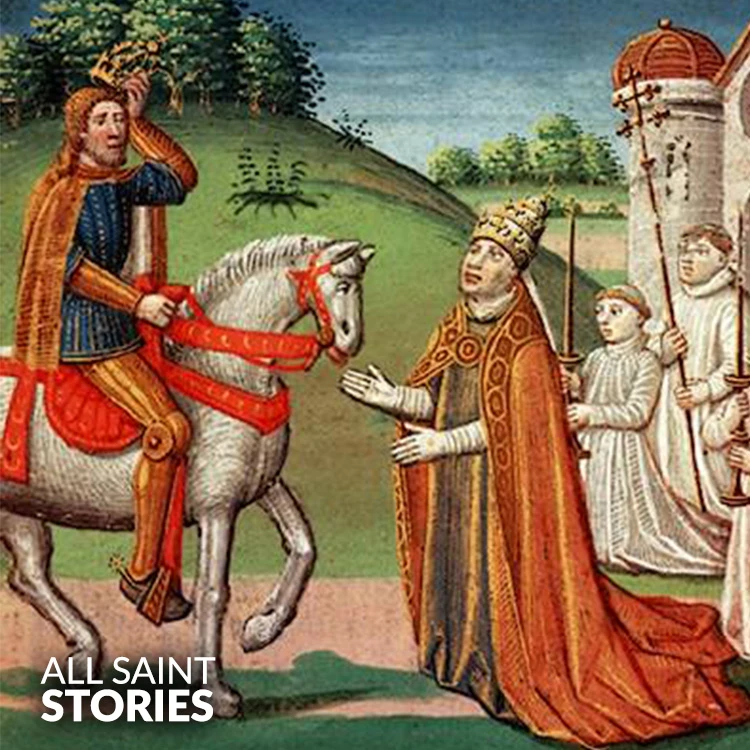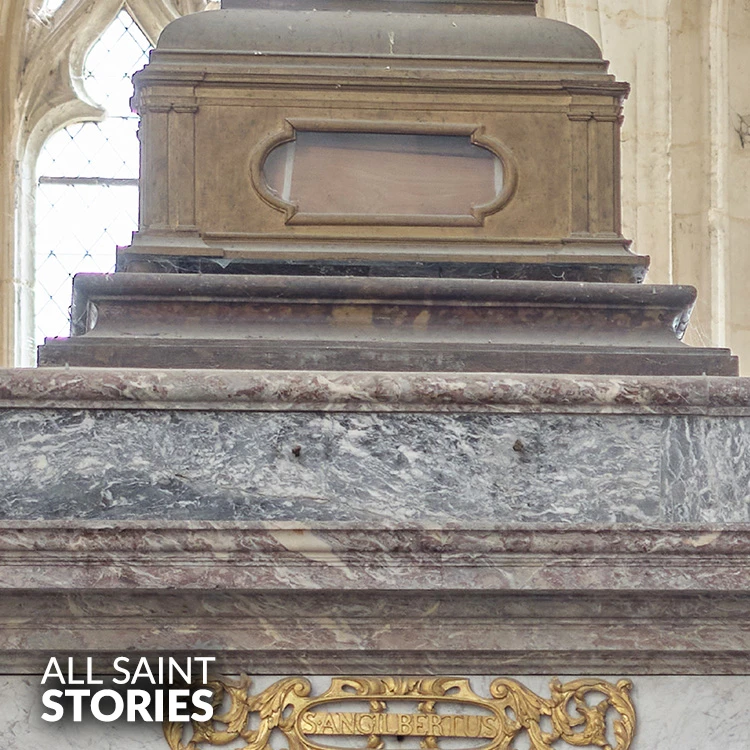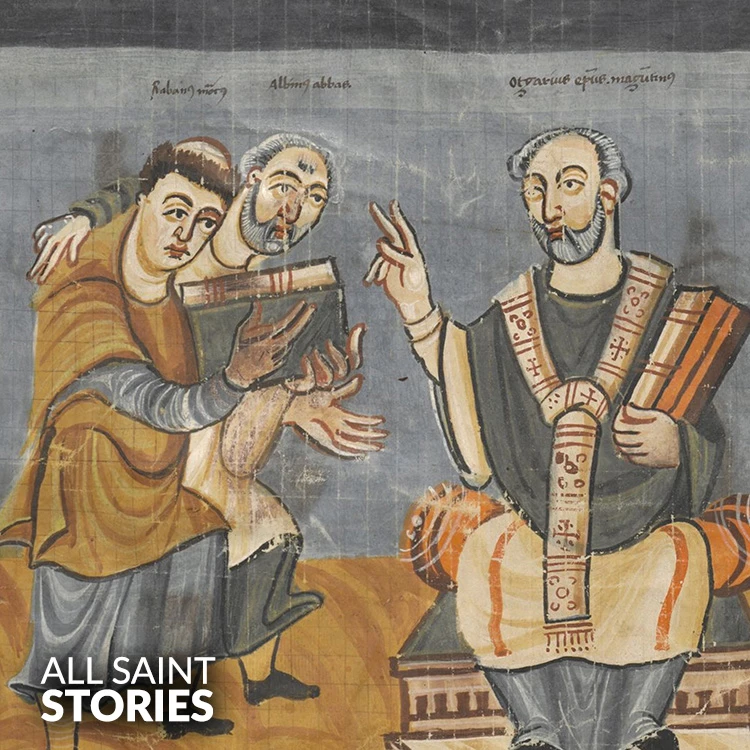"Saint Angilbert, faithful servant of God, Guide us with your wisdom and devotion. Help us to live with love, humility, and courage, And lead us to always follow the path of Christ. Pray for us, that we may grow in faith and virtue, And find peace in our hearts. Amen."
ST. ANGILBERT
ST. ANGILBERT

St. Angilbert, a 8th-century priest and monk, is known for his service to the Church as a close confidant to Charlemagne. He was instrumental in the founding and development of the Abbey of Centula (Saint-Riquier), where he also served as abbot. He was recognized for his deep piety, learning, and commitment to the monastic life. He died in 814 and is honored on February 18.
St. Angilbert was born around the year 760 in the region of what is now modern-day France. Little is known about his early life, but historical sources suggest that he was of noble birth. As a young man, Angilbert became a prominent scholar and a deeply devout Christian. His education and devotion to the faith led him to the court of Charlemagne, the King of the Franks and later Emperor of the Holy Roman Empire. It was at Charlemagne’s court that Angilbert made his most significant contributions, especially in the area of education and church reform.
Angilbert is best known for his close relationship with Charlemagne, and he was entrusted with various important duties within the Frankish kingdom. He was not only a priest but also a trusted advisor and confidant to the emperor. St. Angilbert played an instrumental role in the founding and development of the Abbey of Centula (today known as Saint-Riquier, France), which became a center of learning and religious life under his guidance. As abbot, Angilbert focused on reforming the monastic community and was known for his commitment to discipline and piety.
Beyond his role as a leader in the Abbey of Centula, St. Angilbert was also recognized for his intellectual contributions. He was a skilled scholar and theologian, known for his writings on religious topics. His deep understanding of Christian theology and Scripture was highly regarded by his contemporaries. Additionally, St. Angilbert was dedicated to translating religious texts and preserving the teachings of the Church. He was also known for his works of charity, showing great compassion for the poor and for those in need.
St. Angilbert’s life was deeply intertwined with the Carolingian Renaissance, a period of cultural and intellectual revival under Charlemagne’s reign. During this time, there was a renewed emphasis on education, monasticism, and religious reform. Angilbert was a key figure in this movement, contributing to the advancement of Christian scholarship and the monastic way of life. His role in the development of the Abbey of Centula was particularly influential, as it became one of the most important monasteries in the region.
In 814, St. Angilbert died and was buried at the Abbey of Centula, the place where he had dedicated much of his life’s work. His death marked the end of an era of great religious and intellectual flourishing. St. Angilbert was remembered not only for his intellectual contributions but also for his humility, devotion to the Church, and service to others. His life serves as an example of a Christian leader who balanced intellectual achievement with a deep commitment to faith and service.
St. Angilbert’s legacy continued to influence the Church long after his death. His contributions to the Carolingian Renaissance, his work in founding and reforming monasteries, and his close relationship with Charlemagne cemented his place in the history of the Church. Though his canonization was not pursued during his lifetime, his feast day is celebrated on February 18, and he is venerated as a saint of the Church.
Video Not Found
The information on this website is compiled from various trusted sources. While we aim for accuracy, some details may be incomplete or contain discrepancies.
If you notice any errors or have additional information about this saint, please use the form on the left to share your suggestions. Your input helps us improve and maintain reliable content for everyone.
All submissions are reviewed carefully, and your personal details will remain confidential. Thank you for contributing to the accuracy and value of this resource.
Credits & Acknowledgments
- Anudina Visudhar (Malayalam) – Life of Saints for Everyday
by Msgr. Thomas Moothedan, M.A., D.D. - Saint Companions for Each Day
by A. J. M. Mausolfe & J. K. Mausolfe - US Catholic (Faith in Real Life) – Informational articles
- Wikipedia – General reference content and images
- Anastpaul.com – Saint images and reflections
- Pravachaka Sabdam (Malayalam) – Saint-related content and insights
We sincerely thank these authors and platforms for their valuable contributions. If we have unintentionally missed any attribution, please notify us, and we will make the correction promptly.
If you have any suggestion about ST. ANGILBERT
Your suggestion will help improve the information about this saint. Your details will not be disclosed anywhere.
© 2026 Copyright @ www.allsaintstories.com






 English
English
 Italian
Italian
 French
French
 Spanish
Spanish
 Malayalam
Malayalam
 Russian
Russian
 Korean
Korean
 Sinhala
Sinhala
 Japanese
Japanese
 Arabic
Arabic
 Portuguese
Portuguese
 Bantu
Bantu
 Greek
Greek
 German
German
 Dutch
Dutch
 Filipino
Filipino